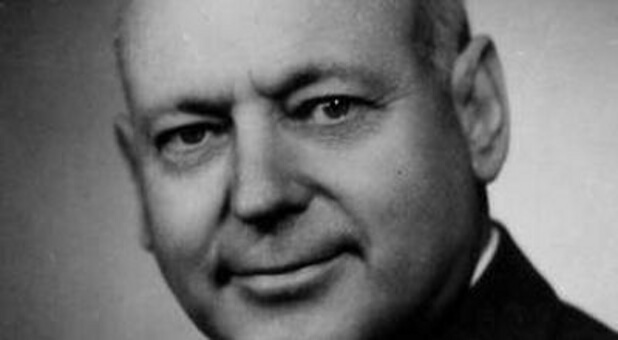God Abides
No matter how marvelous this experience with God on the mountaintop may be, it always comes at last to an end (see Mark 9:8). We cannot live in the mystic cloud of oneness that shuts out the view of the work-a-day world, all day long.
When the period of meditation and prayer has run its course, it often ends quite suddenly. But God abides deep within us, and the power of that hour will accompany us along the way, ready to work miracles upon whomever comes into our presence with faith and love.
However, power generated in this quiet time may be easily dissipated in a way that we least expect. It is so very easy to let idle talk enter in after such a spiritual time. Jesus does not fail to make this law clear: “And as they came down from the mountain, he charged them that they should tell no man what things they had seen” (Mark 9:9).
In the Valley
Now this mountaintop vision manifests itself with miraculous power upon the sick in the valley below. Into this picture comes an example of one of the most difficult of all illnesses for prayer to heal.
The situation is rendered doubly difficult because the father of the sick one has asked the disciples to heal him, and their attempts have failed (see Mark 9:17-19). To make matters worse, the son has an attack right there, as the father is speaking (see v. 20).
First of all, Jesus asked the question, “How long is it ago since this came unto him? And he said, Of a child. And oftimes it hath cast him into the fire, and into the waters, to destroy him” (vv. 21-22).
I have often asked a person in trouble to tell how it began, and when he is finished I would say, “It ends right now.”
Then we have a little prayer time together, in which he gives his end of it, which he is confident that he knows, and I give the end of it, which I am confident that I know, into the hands of the Father. When two agree together in this way in giving any trouble or any illness completely into the hands of the Father, He always takes it away (see Matt. 18:19).
The Faith Factor
The next step that Jesus reveals in curing the sick is to ask the person to muster all his or her faith. “Jesus said unto him, If thou canst believe, all things are possible to him that believeth” (Mark 9:23).
The father’s tears revealed the deep love for his son and the great intensity of his desire for his boy to be well. Love, faith and deep desire are essential requirements for prevailing prayer. And the father added the attribute of honesty when he said: “Lord, I believe; help thou mine unbelief” (v. 24).
Occasionally, a person comes to me for help, and down in his heart he has great doubts that he is ashamed to reveal. The most important thing, almost more important than faith itself, is absolute honesty and absolute humility, which leads one to tell frankly his own faults and weaknesses where it would help to effect a cure.
The next step was Jesus’ rebuking of the foul spirit (see Mark 9:25). Christ’s absolute conviction of the all-powerful reality of God enabled Him to cast out demons and heal the sick wherever people came to him in humility, honesty, faith and love.
Jesus’ disciples were curious as to why they were not effective. Jesus told them: “This kind can come forth by nothing, but by prayer and fasting” (v. 29).
“Prayer and fasting” summarize the whole philosophy of healing I am putting forth here. Fasting refers to the necessary washing out of the bad, and the cleansing through relinquishment of all that would block the way of cure. Prayer refers to the inpouring of power and inspiration through opening oneself to the healing power of God.
“Lord, empty me of self,” is the voice of fasting. “Lord, fill me with Thee,” is the cry of prayer.
Glenn Clark (1882-1956), one of the most widely published authors on the life of prayer in the 20th century, founded the Camp Farthest Out in Koronis, Minn., in 1930. By 1961, there were 41 of them, meeting in nearly every area of the country.












